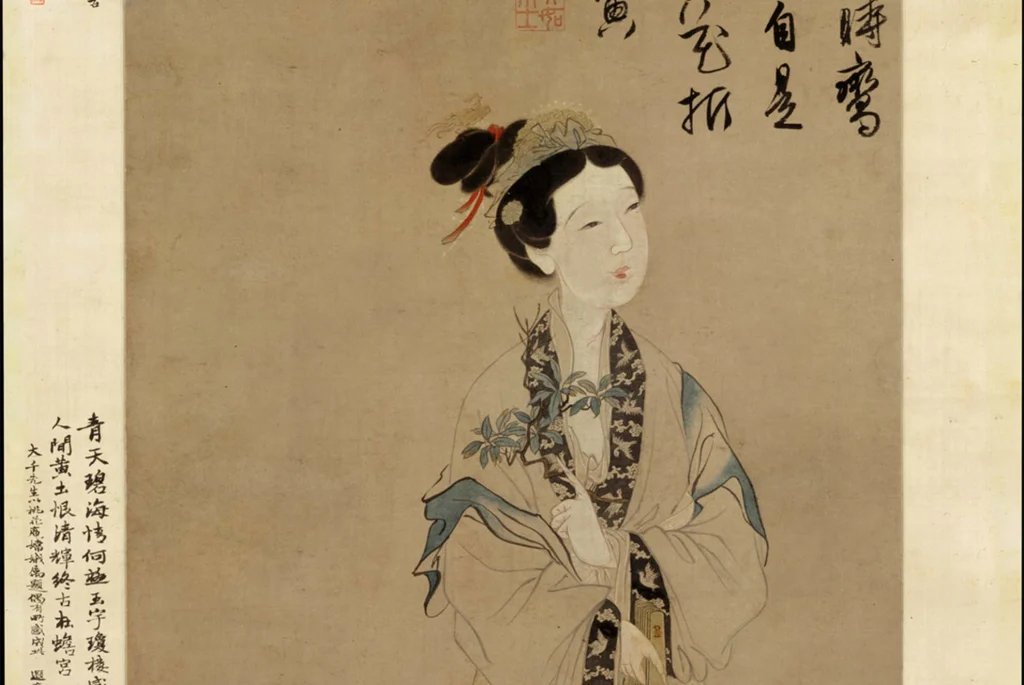Moon Goddess
The candlelight is flickering on my stone screen,
The Milky Way is fading, the Morning Star is falling from the sky。
Moon Goddess, are you not sorry you stole our immortal potion,
Over the blue sea and sky — seeing my lonely heart every night.Li Shangyin, 9th c.
嫦 娥
云母 屏风 烛影 深, 长河 渐 落 晓星 沉
嫦 娥 应 悔 偷 灵药,碧海 青天 夜 夜 心李商隐
Cháng É
Yúnmŭ píngfēng zhúyĭng shēn, Chánghé jiàn luò xiăoxīng chén.
Cháng É yīng huĭ tōu língyào, Bìhăi qīngtiān yè yè xīn.Li Shangyin
Translation Note. For Chánghé, 长河, I used the familiar term Milky Way whereas the Chinese would use Heavenly River. The similar sounding Cháng É, 嫦 娥, the Moon Goddess, is delightful.
Ye Ye Xin is hard to translate. For ye ye, 夜 夜, I come up with “every night” and “heart” for xin, 心. Then I imagine the lonely archer looking up at the sky and the moon, wishing he had been a better ruler and husband.
Well, that’s life and it is too late to deny it.
Fly Me to the Moon
Short poems like Li Shangyin’s Moon Goddess were often put to music. Can you hear the melody of the words –píngfēng, xiăoxīng, língyào, qīngtiān, that’s poetry. There is no denying it.
Similar expressions of the moon and love can be found in 20th century American music.
Moon River, a song composed by Henry Mancini, lyrics by Johnny Mercer, is a well known example. Mercer’s lyrics, “moon river, you heart breaker” captures the feeling of Li’s last line — bìhăi qīngtiān, yè yè xīn, “Blue sea, blue sky, every night can you see my heart.” Okay, some words are implied, but that is true of every poem and song. Fly Me To The Moon, “and let me float among the stars,” a dreamy song by Bart Howard, made famous by Frank Sinatra, also comes to mind. Listen to Billie Holiday’s Blue Moon for a more melancholy mood.
As for poetry, join Li Bai and the moon on any starry night, a connection so strong that it is said he tried to grasp the moon’s reflection from a boat on a lake and drowned.
Chang E and Houyi
Houyi, Lord Archer (to Chang E, his lovely wife): Chang E, on such a morning when the sea and sky are pale blue, when the Heavenly River fades into the distant ocean, and the Morning Star flickers on the water and falls away, Chang E, are you not saddened by the long, lonely nights?
There are several stories about Chang E, the moon goddess. One version tells this tale. Chang’e was a beautiful woman, wife of Houyi, an accomplished archer.
Once upon a time, ten suns rose in the sky, one following another, all day. The land was scorched the crops burned, the people suffered. Lord Archer, Houyi, shot down nine suns, leaving just one. And a grateful Queen Mother of the West gave him an immortal elixir as a reward, enough to share with his wife, Chang E.
Proclaimed king by people in the Middle Kingdom, Houyi became a tyrant. Chang E, fearing that he would rule forever, drank the potion and fled to the moon to escape her hot-tempered husband.
Li Shangyin was a poet of the late Tang dynasty. The forty-five years of his life (c. 813–858) encompassed the turbulent reign of six emperors and the rising influence of the palace eunuchs. The tale of one emperor, Wuzong, recalls the story of Houzi and Chang E and their immortal potion. Wuzong began taking pills hoping to lead to immortality. His mood became angry and he died six years into his reign.
The circumstances of Li Shangyin’s own death are not recorded. He was however considered the last great Tang poet.












